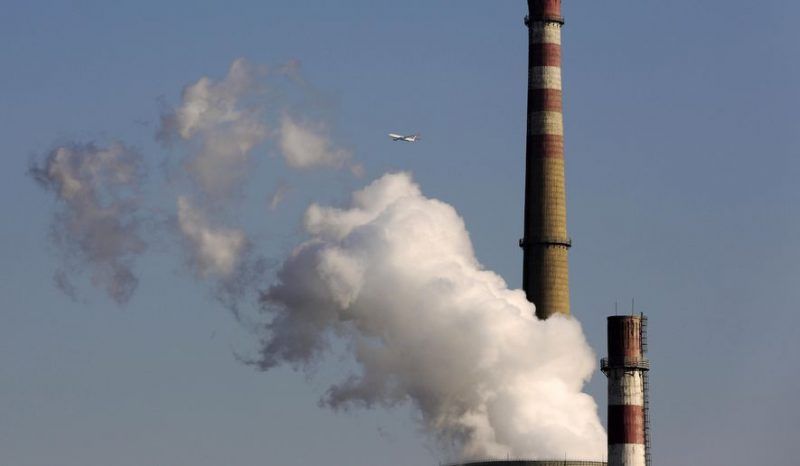
Fossil fuel antagonists have devised numerous schemes, campaigns and justifications to curb or eliminate hydrocarbon energy. Their latest gambit is Global Divestment Day, Feb. 13-14, dedicated to pressuring institutions to eliminate fossil fuel companies from their investment portfolios.
A mere 200 years ago, the vast majority of humans were poor, sick and malnourished. Life expectancy in 1810 was less than 40 years, and even royal families lived under sanitation, disease and housing standards inferior to what poor American families enjoy today. Then a veritable revolution occurred.
Wealth, technology, living standards and life spans skyrocketed. In just two centuries, average world incomes rose elevenfold, disease rates plummeted, and life expectancy more than doubled.
Many factors played vital roles, but fossil fuels provided the energy that drove industrial, transportation, housing, health care and environmental improvements. Today, 85 percent of the world’s energy is still coal, oil and natural gas.
Unfortunately, this revolution did not benefit everyone equally. Billions of people still live under conditions little better than what prevailed in 1810. Bringing them from squalor, disease and early death to modernity is a pressing economic, technological and moral challenge.
Divesting hydrocarbon stocks and ending fossil fuel use would prevent that and reverse progress the modern world has made.
Trains and automobiles would not run. Planes would not fly. Refrigeration, indoor plumbing, safe food and water, central heating and air conditioning, plastics and pharmaceuticals would become luxuries for wealthy elites. We would swelter in summer and freeze in winter.
We’d have electricity only when it’s available, not when we need it — to operate assembly lines, conduct classes and research, perform life-saving surgeries, and use computers, smart phones and social media.
Divesting fossil fuel portfolios is also financially imprudent. Hydrocarbon stocks are among the best for solid, risk-adjusted returns for colleges and universities, as well as public pension funds.
To avoid the economic, social, environmental and human health catastrophes that would follow fossil fuel elimination, we would need affordable, reliable options on a large enough scale to replace them. Existing “renewable” technologies cannot possibly do that.
Using biomass — instead of coal or natural gas — to generate electricity for one U.S. city of 700,000 people would require cutting down trees across an area the size of Rhode Island every year, energy analyst Howard Hayden points out. Wind and solar currently provide just 3 percent of global consumption, and by 2040 will still represent little more than that, the U.S. Energy Information Administration forecasts.
Not using fossil fuels is tantamount to not using energy. It is economic suicide and eco-manslaughter.
Over the past three decades, fossil fuels enabled 1.3 billion people to escape debilitating energy poverty — more than 830 million thanks to coal alone. China connected 99 percent of its population to the grid and increased its steel production eight times over, again mostly with coal.
However, 1.3 billion people are still desperate for electricity and modern living standards. In India alone, more than 300 million people (the population of the entire United States) remain deprived of electricity.
In sub-Saharan Africa, some 615 million (100 million more than in the U.S., Canada and Mexico combined) still lack this life-saving technology, and 730 million (the population of Europe) still cook and heat with wood, charcoal and animal dung. Millions die every year from lung and intestinal diseases, due to breathing smoke from open fires and not having the safe food and water that electricity brings.
Ending this lethal energy deprivation will require abundant, reliable, affordable energy on unprecedented scales. More than 80 percent of it will have to come from fossil fuels.
Coal-fired power plants in many developing countries do emit large quantities of sulfates, nitrous oxides, mercury and soot that can cause respiratory problems and death. However, modern pollution control systems could, and eventually will, eliminate most of that.
As for “dangerous man-made climate change,” thousands of scientists say natural forces still drive climate fluctuations, carbon dioxide plays only a minor role, and we face no looming crisis. They also note that real-world climate and weather strongly contradict computer models that drive alarmist claims, and much of the supposed “climate science” is questionable or even fraudulent.
We therefore ask: What right do divestment activists have to deny Earth’s most destitute people access to electricity and motor vehicles, jobs and better lives? How can they impose policies that “safeguard” human beings from hypothetical, exaggerated or illusory climate change risks 50 years from now — by imposing energy and health care deprivation that will perpetuate disease and could kill them tomorrow?
To these activists, we say: Divest yourselves first. Eliminate fossil fuels from your lives. Live like natives in a Third World country a few months, walking everywhere, drinking parasite-infested water, breathing polluted air, battling disease-carrying insects — without benefit of modern drugs or malaria preventatives — and then ponder life without fossil fuels.
To colleges, universities and pension funds, we suggest: Demand open, robust debate on all these issues before you vote on divestment. Allow no noisy disruption, walkouts or false claims of consensus. Compel divestment advocates to defend their positions, factually and respectfully. Protect the rights and aspirations of people everywhere to better living standards and improved health.
And proclaim Feb. 13-14 “Hydrocarbon Appreciation Day.”
Paul Driessen is senior policy analyst for the Committee for a Constructive Tomorrow and author of Eco-Imperialism: Green Power — Black Death (Merril Press, 2010). Energy analyst Roger Bezdek is president of Management Information Services, Inc.
